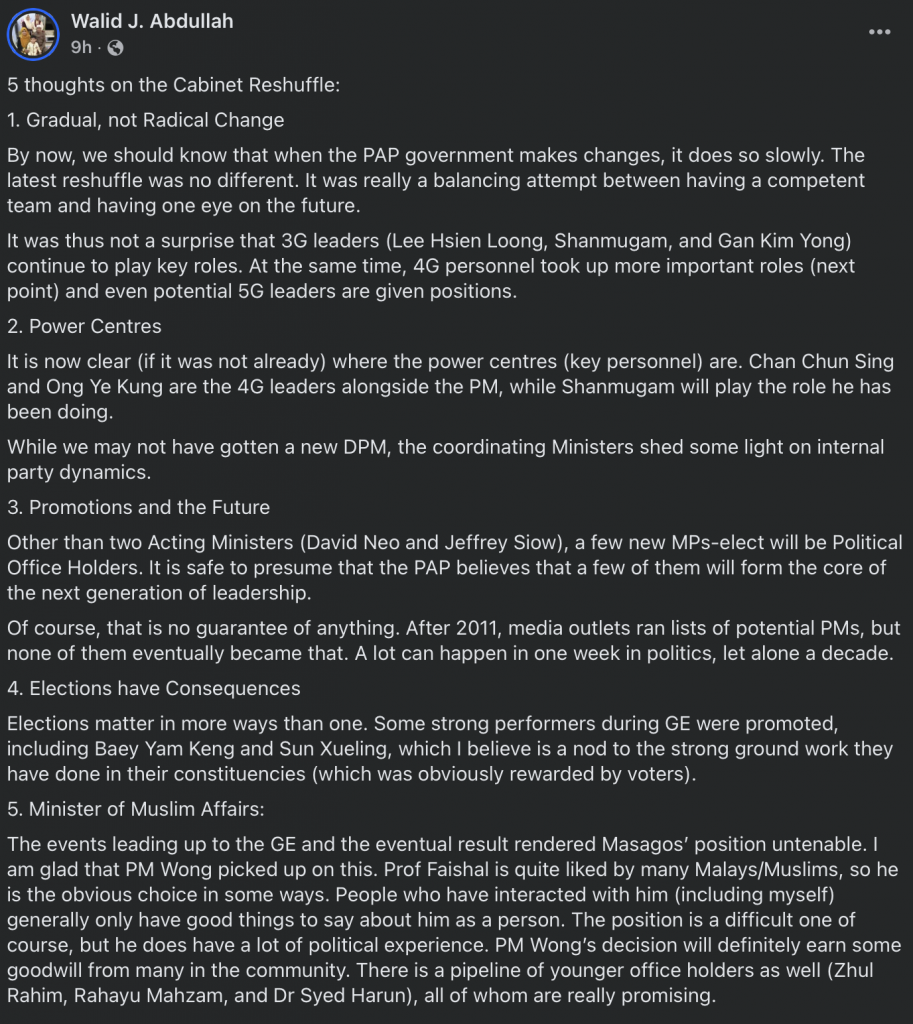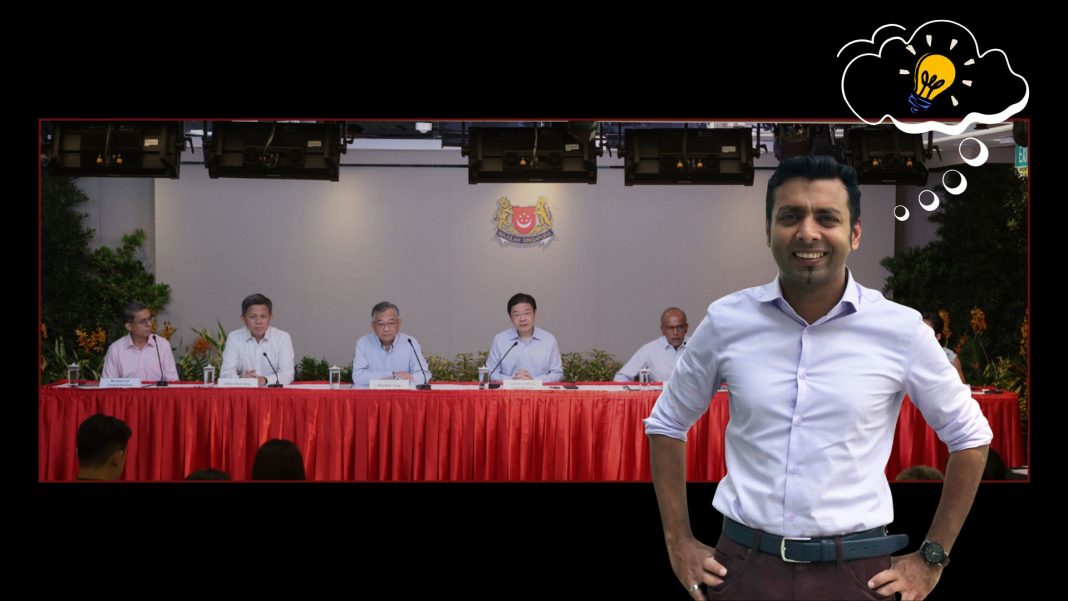SINGAPORE: Singapore’s latest cabinet reshuffle, announced earlier this week, has sparked a wave of commentary across political circles, but one voice that stood out was that of Dr. Walid Jumblatt Abdullah, a political scientist and economist at NUS, who took to Facebook with a concise five-point reflection on what the changes reveal about the People’s Action Party’s (PAP) leadership strategy and internal dynamics.

1. Gradual, not radical change
Dr. Walid opened his post with what has become a common observation of the PAP’s governing style: incrementalism. “When the PAP government makes changes, it does so slowly,” he noted, adding that the latest reshuffle was a delicate balancing act between present competence and future-readiness.
While familiar faces from the third-generation (3G) leadership—such as Lee Hsien Loong, K Shanmugam, and Gan Kim Yong—remain in key roles, the promotion of 4G leaders and a quiet nod to 5G aspirants signal the party’s slow pivot towards generational renewal.
2. The emergence of power centres
Without explicitly naming a new Deputy Prime Minister, the PAP has consolidated influence among select senior figures instead. Dr. Walid highlighted Chan Chun Sing, Ong Ye Kung, and PM Lawrence Wong as the “power centres” of this generation, while Shanmugam continues his longstanding role in legal and home affairs.
He further pointed out that the designation of coordinating ministers—without major title changes—sheds light on the internal power-sharing logic that defines today’s cabinet.
3. Promotions and political succession
Two new Acting Ministers—David Neo and Jeffrey Siow—were named, and a number of newly elected Members of Parliament (MPs) were appointed as Political Office Holders. While such moves often invite speculation about who’s “next in line,” Walid tempers that enthusiasm.
“After 2011, media outlets ran lists of potential PMs, but none of them eventually became that,” he wrote. The takeaway? Succession is never guaranteed, and political fortunes can shift quickly, sometimes within weeks.
4. Elections have consequences
Dr. Walid emphasised that electoral performance still matters in Singapore’s technocratic meritocracy. Citing Baey Yam Keng’s and Sun Xueling’s promotions, he framed their rise as “a nod to the strong ground work they have done in their constituencies,” suggesting that political reward systems remain closely tied to voter trust and local engagement.
5. Muslim affairs: A sensitive transition
In one of his more candid reflections, Dr. Walid addressed the replacement of Masagos Zulkifli as Minister-in-Charge of Muslim Affairs—a move he deemed “inevitable” given the socio-political tensions in the lead-up to the election. The appointment of Prof Muhammad Faishal Ibrahim was described as both strategic and sincere.
“Prof Faishal is quite liked by many Malays/Muslims,” Walid observed, adding that his own interactions with Faishal have been “nothing but positive.” The transition, he believes, may restore goodwill within segments of the community still seeking authentic representation.
Notably, Walid ended with optimism, naming younger Malay leaders like Zulhilmi Rahim, Rahayu Mahzam, and Dr. Syed Harun as promising figures in the pipeline.
Analysis: Continuity with calibration
Dr. Walid’s reflections offer an inside-out look at the PAP’s slow-but-steady approach to leadership renewal. Far from a dramatic overhaul, the new cabinet appears to be calibrated for both immediate governance and long-term succession.
In a party where optics, order, and strategy intertwine, the real story isn’t just who got promoted, but how carefully power is being shared, tested, and transitioned.

